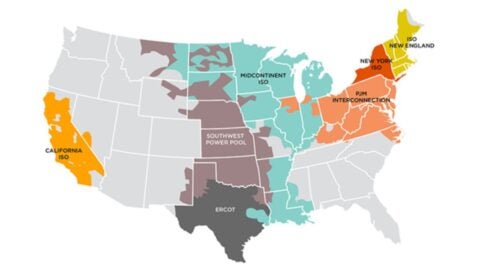Financial Market Regulators Release Guidance Contemplating Oversight of VCM
This blog was authored by Holly Pearen, Lead Counsel for People & Nature at the Environmental Defense Fund.
Proposed Guidance from Financial Market Regulators Could Improve Integrity and Transparency in the Voluntary Carbon Market
Many of the world’s largest companies have committed to net zero, and high-quality carbon credits are increasingly seen as a key tool for meeting ambitious climate commitments. As a result, interest in voluntary carbon markets is surging: A 2023 survey found that nearly nine in 10 business leaders see carbon credits as an important component of corporate sustainability strategies.
However, almost 40% of the companies surveyed noted that the voluntary carbon market’s “lack of regulation and transparency requirements” prevented deeper investment and indicated that improvements in price and intermediary transparency would increase their use of carbon credits as part of a wider sustainability strategy. Financial market regulators are in a unique position to directly address this significant barrier to investment and help rebuild trust, boost integrity and add critical investor protections in the voluntary carbon market.
Two proposals released in early December outline the important role of financial market regulators and offer specific suggestions for action.
On Monday, December 4, 2023, the U.S. Commodity Futures Trading Commission (CFTC) released draft guidance for regulated exchanges that list carbon credit based derivatives. While voluntary, the guidance will clarify CFTC’s expectations regarding the quality of carbon credits eligible for delivery into futures contracts.
Environmental Defense Fund has been deeply involved in, and supported work to raise the bar for carbon credit quality, and welcomes the engagement of the CFTC and other financial market regulators to further these efforts. Notably, the Integrity Council for Voluntary Carbon Markets, an independent governance body for the voluntary carbon market, recently released its Core Carbon Principles, a set of 10 criteria that serve as a global benchmark for high-integrity carbon credits. The CCPs set rigorous thresholds for carbon-crediting program governance, emissions impacts, and sustainable development.
To the extent that CFTC guidance mirrors these principles, and principles established by similarly diligent governance bodies, both buyers and sellers can benefit from a shared understanding of the characteristics of high-integrity carbon credits. This should raise the bar on credit quality, and foster transparency, liquidity, accurate pricing and market integrity as carbon credit derivative contracts become more standardized.
The publication of CFTC’s draft guidance coincides with the unveiling of a Voluntary Carbon Markets Consultation Report from the International Organization of Securities Commissions (IOSCO). The IOSCO Voluntary Carbon Markets Consultation Report identifies potential vulnerabilities in the primary and secondary voluntary carbon credit markets, and addresses the role financial regulators may play in promoting sound, liquid, fair and stable primary and secondary carbon credit markets.
IOSCO proposes a set of 21 Good Practices, based on insights from existing traded asset markets. While CFTC’s draft guidance leverages existing authority over secondary markets to drive improvements in carbon credit integrity, IOSCO’s proposed Good Practices suggest that relevant regulators consider a broader role in improving voluntary carbon market infrastructure. Examples of well-reasoned and potentially impactful activities include:
- applying effective regulation, supervision and oversight to the issuance, trading and retirement of carbon credits – including measures to ensure that registries are reliable sources of information;
- clarifying the legal status of carbon credits to resolve outstanding questions about securitization and treatment in bankruptcy;
- promoting transparency around the creation and sale of credits through comprehensive disclosures on the project development process, verification and auditing methodologies, and MRV activities; and
- adopting measures to ensure that VCM participants observe high standards of integrity and fair dealing with respect to business activities, including conflicts of interest rules.
The draft CFTC guidance and IOSCO Good Practices come at a critical inflection point for the voluntary market. Whether to invest in the voluntary carbon market will remain voluntary, but guidance from financial market regulators like CFTC that clarifies how investment and transactions occur can meaningfully boost confidence, transparency and credibility.
With only about 16% of climate finance needs currently being met, all tools that can equitably direct finance to critical climate action must be optimized. The voluntary carbon market hasn’t yet reached its potential to deliver fair, efficient climate and social impacts, but the draft CFTC guidance on carbon credits should help move it in the right direction.












